Equity & Access
EduAccess: Bringing Learning to the Margins
Powering Education. Expanding Opportunities.
EduAccess is Edugist Education Foundation’s innovative solution to bridge the education divide in underserved and conflict-affected communities across Nigeria. By deploying solar-powered, tech-enabled learning hubs, EduAccess provides access to quality education, digital tools, and connectivity for learners who are often excluded from mainstream opportunities.
EduAccess combines renewable energy, inclusive pedagogy, and digital innovation to create safe, sustainable spaces where children and young people can learn, connect, and thrive.
Why EduAccess?
Education in Nigeria faces stark inequalities:
- Over 10 million children are currently out of school, many in rural or conflict-affected regions.
- Schools in underserved communities often lack electricity, digital resources, and safe infrastructure.
- Students in these areas are cut off from digital opportunities, widening the gap between urban and rural learners.
EduAccess was created to break these barriers by offering:
- Solar-powered hubs ensuring reliable electricity in off-grid communities.
- Digital learning devices preloaded with curriculum-aligned content.
- Internet connectivity for access to global knowledge resources.
- Trained facilitators to support learners and teachers in adopting technology for education.
Programme Design
EduAccess is designed as a hybrid learning model that integrates offline and online education in community hubs.
Core Components:
Infrastructure
Modular, solar-powered hubs built for underserved communities.
Technology
Devices, digital libraries, and learning management systems tailored to local needs.
Content
Curriculum-based and skills-oriented resources, including literacy, numeracy, and digital skills.
Facilitators
Community teachers and volunteers trained in blended learning methods.
Community Ownership
Local engagement to ensure sustainability and long-term impact.
Pilot Phase
In its pilot phase, EduAccess has been deployed in select rural communities, providing:
- 1,200+ learners with consistent access to learning resources in year one.
- 50 teachers trained in digital literacy and blended learning techniques.
- Reliable solar energy powering learning hubs and enabling after-school study sessions.
The pilot has shown that children previously excluded from quality education can quickly adapt to technology-driven learning when provided with the right tools and support.
Programme Structure
NSVP runs biennially and follows a rigorous process designed to identify and nurture student innovators:
Call for Applications – Open nationwide to all tertiary institutions.
Screening & Selection – A transparent, multi-stage process to identify the most promising ventures.
Capacity-Building Bootcamp – Intensive training sessions covering entrepreneurial and digital skills.
Pitch Event – Finalists present to judges, investors, and stakeholders in a nationally recognised competition.
Awards & Post-Programme Support – Winners receive seed funding, mentorship, and access to alumni networks.
Impact Goals (3–5 Years)
EduAccess aims to expand across Nigeria with measurable targets:
Reach learners in underserved and conflict-affected communities.
Establish learning hubs in rural and peri-urban locations.
Train educators and facilitators in hybrid learning approaches.
Reduce the number of out-of-school children in targeted communities.
Stories of Change

A 12-year-old girl in a rural community in Northern Nigeria gained access to digital learning for the first time. Today, she dreams of becoming a teacher and advocates for girls’ education among her peers.
Fatima’s Journey

Mr. Joseph, a rural teacher, now uses EduAccess hubs to introduce interactive science lessons, making his classes more engaging and impactful.
Teachers Empowered
Partnerships and Support
EduAccess thrives on collaboration. We work with:
Local Communities
To foster ownership and ensure sustainability.
Government Agencies
To align with education policies and frameworks.
Private Sector Partners
To provide technology, connectivity, and funding support.
International Organisations
To strengthen advocacy and global knowledge exchange.
Why Partner With EduAccess?
- Contribute to reducing educational inequity in Nigeria.
- Support renewable energy and digital inclusion.
- Create measurable social impact aligned with the Sustainable Development Goals.
How to Get Involved
Donate
Fund the setup of learning hubs and provide devices for learners.
Partner
Collaborate to deliver technology, content, or training.
Volunteer
Share your expertise to train facilitators and support communities.
Who benefits from EduAccess?
Children, young people, and educators in underserved and conflict-affected communities.
What makes EduAccess unique?
It combines renewable energy, digital technology, and local ownership to deliver sustainable education solutions.
Can EduAccess work without internet?
Yes. The hubs come preloaded with offline learning content and can connect to the internet when available.
How is EduAccess funded?
Through donations, grants, and partnerships with public and private sector actors.
EduAccess: Lighting Up Classrooms, Transforming Futures
Every child deserves access to learning opportunities, regardless of where they are born. With EduAccess, we are rewriting the story of education in Nigeria’s most underserved communities — one hub, one child, one future at a time.
